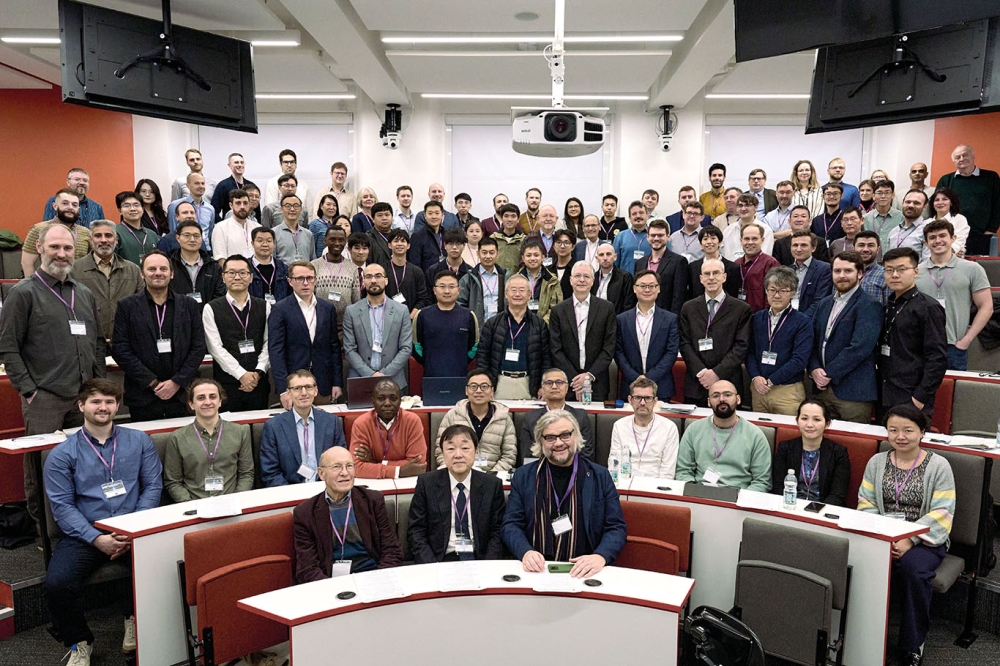Fusion IP spins out LED business from Sheffield University
The new company is founded on the invention of Dr Tao Wang, whose research team has developed a novel processing technique combining nano-science and fundamental physics, to greatly increase the efficiency at which an LED converts energy into light.
![]()
According to Fusion, successful demonstrations of the technology have so far resulted in a doubling of the light output compared to untreated devices. Consequently the technology has two key benefits as it can enable much brighter lamps to be manufactured using LEDs or separately that power consumption in state-of-the-art lamps can be reduced to a single watt.
"This is an exciting technology and a great example of how the injection of scientific know-how and commercial sector skills can facilitate the conversion of Sheffield s world class IP pipeline into businesses with real value, both financial and social”, Seren Photonics MD Dr Carl Griffiths commented, “Seren Photonics has the potential to revolutionise the illumination markets, be a key contributor to reducing green house gas emissions and realise a considerable return for all of its shareholders”.
New technology is needed by the lighting industry to replace traditional incandescent bulbs, which most countries have agreed to scrap by the middle of the decade, Fusion said. Accordingly Seren Photonics’ patent pending technology is expected to be at the forefront of this development, as this new technology will have exceptional efficiency and provide significant cost reductions, enabling ultrahigh efficient LEDs to be the first choice replacement for incandescent bulbs.
Fusion has a 60% holding in Seren Photonics, gained through its exclusive intellectual property commercialisation deal with the University of Sheffield. In 2008, Fusion expanded its original deal, which gives it the rights to all physical sciences IP until 2018, in addition to the exclusive medical IP rights, which currently run to 2015. Fusion supports and funds the commercialisation process which turns the academic research into deliverable products.
In addition to domestic and architectural lighting, white LEDs are used in a broad range of electronic goods such as back lighting for laptop computers and TVs, signs and displays. Seren Photonics believes this market is currently worth an estimated US$5bn annually and is set to grow to US$12bn by 2013.
Dr Wang is leading a research team working on III-nitride semiconductor based optoelectronic devices. The team has strong links with the Engineering and Physical Sciences Research Council National Centre for III-V Technologies, which is also located in Sheffield. The research centre for III-V compound semiconductors has comprehensive facilities for the fabrication of a wide range of semiconductor based optoelectronic devices, Fusion said.
In addition to its partnership with the University of Sheffield, Fusion also has a similar exclusive partnership with Cardiff University. These long-term exclusive agreements give Fusion access to a combined R&D (research and development) spend of over £185 million a year. According to Fusion, these exclusive partnerships enable them to develop some of the world s most advanced science, in varied fields including clean energy, electronics, engineering and medicine.
Earlier this week, Fusion announced a new spin-out from its Cardiff University partnership. The newly established Progenteq is developing a novel cartilage replacement technique, using technology developed by Professor Charlie Archer s research group at Cardiff University s School of Biosciences.
Archer’s group successfully isolated a defined population of cells, with stem-cell-like properties, from the articular cartilage which surround the main bones in the knee joint. According to Progenteq these cells, when derived from donors, can be used to grow a large tissue-bank that is suitable for insertion into patients when needed. This procedure is referred to as "allogeneic" cartilage replacement therapy.
This week’s spin-outs take Fusion’s 2010 company launches to three, one from Sheffield University and two from the Cardiff University partnership. In January the company announced a new start-up medical devices company in association with Cardiff, Asalus Medical Instruments Ltd. Asalus is developing three devices that it believes will improve the safety and efficiency of laparoscopic surgery, or keyhole surgery.































